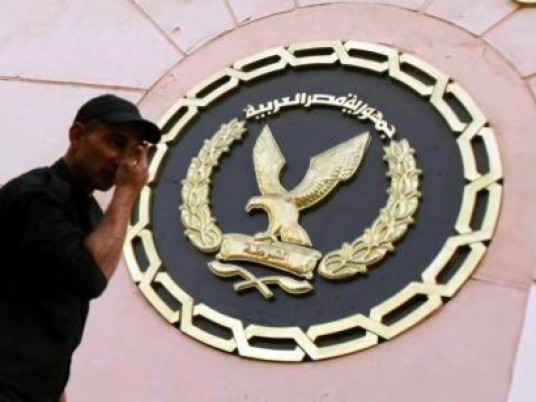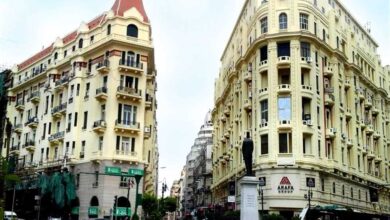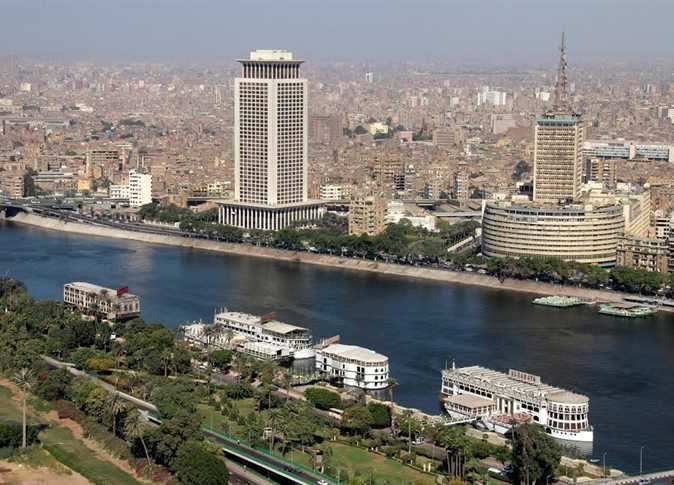When Downtown Cairo coffeehouse Horreya closed its doors on 25 February for a religious holiday, it was no surprise for the eclectic clientele of the cafe. Whether you are a foreigner that just got here or a seasoned veteran to Cairo, almost everyone understands that when an Islamic holiday rolls around, the beer stops flowing.
However when the doors stayed closed long after the holiday, patrons of all walks of life began to worry, and collective worry in this city can generate some rumors. Natural fixtures in the old haunt – expats, native intellectuals, and artists – together began to postulate the possible cause for this abrupt change to their Thursday night routine. Among the reasons for closure were: repairing damages after an unexpected flood, the owner died, their liquor license expired, a customer died, and the least imaginative assumption, that they just needed to fix up the place.
After speaking to the owner, who is very much alive, the real reason for the three-month closure landed on the simple need for renovations. The owner, who did not want to give his name, claimed that Horreya is put under review every two years by the International Organization for Standardization (IOS) in order to meet health codes. While the doors were closed, the walls, which have played witness to thousands of conversations, got covered in new paint, the bathrooms got refurbished, and new Stella (local beer) chairs now fill the floor space. It’s a new era for the café.
Aesthetically, Cairo’s favorite baladi (popular) bar got a face lift, but deeper changes are taking place. The cafe’s owner, a partner with 14 other owners, confirmed a new business direction for Horreya. All of the owners want to make the bar cleaner, commercial, and a must-see for visiting foreigners. “More khawagat, or foreigners, are good for business,” he claimed, “its our goal now to keep bringing them in.” Whether those khawagat would drive out the veteran intellectual clientele of the café, the owner didn’t care.
On the surface, Horreya is described as a friendly place, where cheap Stella is virtually pushed to your chest by Milad, the veteran waiter, and customers, either Egyptian or Western, converse regardless of class and profession. But for decades this aged watering hole has been a cornerstone for hosting Egyptian intellectualism, much in harmony with the social function that Downtown Cairo as a whole played for decades.
Saad, a 60-year old waiter who has worked in Horreya since 1967, claims that he has seated local artists, leftist philosophers, musicians, actors and literati from former President Gamal Abdel Nasser’s death to the current, politically frustrating times.
However, after years of Horreya becoming more and more popular for foreign travelers and expats, and with this new renovation, Saad has seen less of these older customers.
Many of them were chess players, and when Horreya reopened on 20 May, there was a new ban on chess playing in the bar. According to the owner, the chess crowd had slowly changed from the older respected group of doctors and lawyers commonly seen there throughout the 1980s to a younger, rambunctious crowd. “This ruder group of customers were scaring away the new foreign customers,” the owner said, which is now something that does not pass in Horreya.
When asked why the older intellectuals left the cafe, the owner was stumped.
Kevin, a 15-year expat and freelance writer, explained that the tables used to be more inviting. “When I would come here in the late 1990s, the crowd was more Egyptian and friendly, and once I walked in the place I would get invites from various tables of Egyptians to join them.” But now Kevin notices that groups are more cliquey in the bar and tables are more exclusive.
Intellectualism thrived sometimes ago in Horreya as cab drivers and lawyers shared tables, seasoned artists met newcomers and swapped concepts. Now it seems that new social realities have changed the way people interact with each other; and it’s all manifest in the space of the bar. Kevin and his friends claimed that this former forum for sharing intellectual ideals has just become commercialized, slapped with Stella logos, and rather faded from its glory days.
Mohamed, a 24-year old Cairo University graduate, attributes the changes to a new, Internet savvy generation “It seems that around 2005, Internet became more accessible to middle and upper class Egyptians. Facebook and western television has kind of messed us up and you see this in Horreya.”
Horreya is changing both in image and clientele, but it retains its charm as a downtown favorite baladi bar. With its high vaulted ceilings, vintage beer ads, and faded undertones of an older, colonial Cairo, it continues to attract Egyptian artists, intellectuals, and politicos hungry for discussion, as well as the khawaga thirsty for beer. As fewer intellectuals frequent this cafe, it continues to serve as a stage for an eclectic patronage to tell their stories. How this tradition of exchange and conversation will continue to change remains uncertain.




